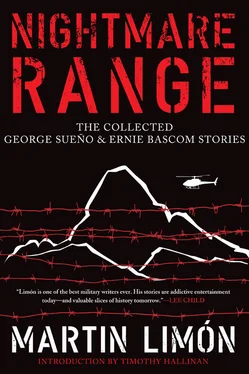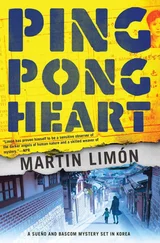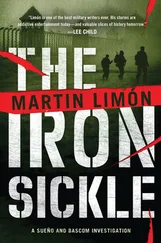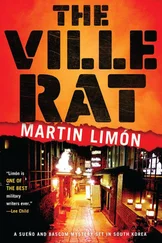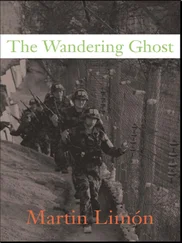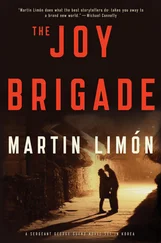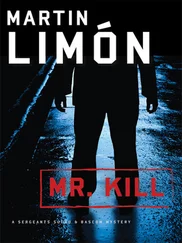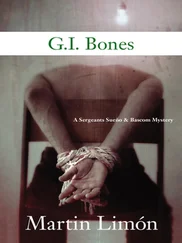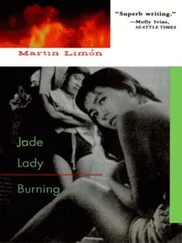Martin Limón - Nightmare Range
Здесь есть возможность читать онлайн «Martin Limón - Nightmare Range» весь текст электронной книги совершенно бесплатно (целиком полную версию без сокращений). В некоторых случаях можно слушать аудио, скачать через торрент в формате fb2 и присутствует краткое содержание. Год выпуска: 2013, ISBN: 2013, Издательство: Soho Crime, Жанр: Полицейский детектив, на английском языке. Описание произведения, (предисловие) а так же отзывы посетителей доступны на портале библиотеки ЛибКат.
- Название:Nightmare Range
- Автор:
- Издательство:Soho Crime
- Жанр:
- Год:2013
- ISBN:9781616953324
- Рейтинг книги:4 / 5. Голосов: 1
-
Избранное:Добавить в избранное
- Отзывы:
-
Ваша оценка:
- 80
- 1
- 2
- 3
- 4
- 5
Nightmare Range: краткое содержание, описание и аннотация
Предлагаем к чтению аннотацию, описание, краткое содержание или предисловие (зависит от того, что написал сам автор книги «Nightmare Range»). Если вы не нашли необходимую информацию о книге — напишите в комментариях, мы постараемся отыскать её.
Nightmare Range — читать онлайн бесплатно полную книгу (весь текст) целиком
Ниже представлен текст книги, разбитый по страницам. Система сохранения места последней прочитанной страницы, позволяет с удобством читать онлайн бесплатно книгу «Nightmare Range», без необходимости каждый раз заново искать на чём Вы остановились. Поставьте закладку, и сможете в любой момент перейти на страницу, на которой закончили чтение.
Интервал:
Закладка:
“Nobody looks at that stuff.”
But when we flashed our badges he complied and escorted us into the warehouse. After he showed us where to look, the phone rang in his office. He used that as an excuse to hand me the flashlight and return to the coziness of his cramped little empire.
When we were alone, I turned to Ernie. “You sort of liked that Widow Po, didn’t you?”
“Yeah,” Ernie responded. “Nice body.”
“So we do her a favor. That’s all. See if any GIs were murdered twenty years ago. Any GIs named Mori Di .”
I stopped at a row of boxes. There, up at the top, Fiscal Year 1954. Grabbing a handhold, I started to climb on the boxes below. Ernie helped hoist me up.
“You don’t believe any of that stuff, do you?” he asked. “Good show, but it’s all an act.”
I grabbed the box, blew dust off the top, and studied it. Bound with wire, no chance to check the contents up here.
“Pretty convincing act,” I replied.
“But still nothing more than an act.”
I slid the box down to Ernie. He broke its fall but it was still heavy enough to land on the cement floor with a thump.
“Wire cutters,” I said.
Ernie returned to the office and brought back a pair.
“The Sarge says we’ll have to rebind it ourselves.”
“Screw him.”
“That’s exactly what I told him.”
Ernie snipped the thick wire, pulled the top off, and then held the flashlight while I crouched down and thumbed through the manila folders.
I pulled a few out.
Fascinating stories. About GIs assaulting, robbing, and maiming other GIs. About GIs assaulting, robbing, and maiming Koreans. Very few about Koreans assaulting, robbing, or maiming GIs. The Korean War had ended only a few months before. The Koreans were flat on their back economically. GIs, comparatively, were as rich as Midas. Still, Confucian values dictated that the Koreans use their wiles, not their brawn, to obtain a share of US Army riches. I could’ve spent hours here studying these cases but we didn’t have time. We were on the black market detail and this was our lunch break. The CID First Sergeant would be checking on us soon.
Then I spotted a thick manila folder.
“What is it?” Ernie asked.
I pointed.
There, typed neatly across the white label affixed to the folder was a name and a rank: Moretti, Charles A., Private First Class (Deceased).
We’d found Mori Di .
That evening, Ernie and I repaired to Itaewon, the red light district in southern Seoul that caters to GIs and other foreigners. But this time we didn’t hit the nightclubs. Instead, we walked into the Itaewon Police Station. Captain Kim, the officer in charge of the Itaewon Police district, was waiting for us. I’d called him earlier that afternoon. Sitting behind his desk, he stared at us from beneath thick eyebrows. The square features of his face revealed nothing.
“No one remembers Mori Di ,” he told us. “Too long ago.”
“Surely you have records.”
“Most burn. Before Pak Chung-hee become President.”
There were serious civil riots in Seoul and other major cities of South Korea when the corrupt Syngman Rhee government was overthrown in the early Sixties.
“Still,” I said, “the murder happened only twenty years ago. There must be some cop somewhere who remembers the case.” I glanced at the notes I’d taken while reading Moretti’s case folder. “An officer named Kwang. A lieutenant. The given name Bung-lee. Most of the Korean National Police reports were attributed to him.”
Captain Kim nodded. He already knew this. For him, keeping cards close to his vest was a lifetime habit.
“Why,” he asked, “is the American army so interested in an old case?”
Ernie glanced at me but held his tongue. I hadn’t told Captain Kim that our interest was unofficial. If I had, he wouldn’t have cooperated at all.
“Long story,” I said. “Are you going to tell us how to find Lieutenant Kwang or not?”
Captain Kim sighed, reached into his top drawer, and pulled out a slip of brown pulp paper folded neatly in half. He slid it toward us, his fingers still pressing it into the desk. “Before you make your report, will you talk to me?”
“Yes,” I promised.
He handed me the slip of paper.
“You must be nuts,” Ernie said.
He was driving the jeep and we were wearing civvies, faded blue jeans and sports shirts. It was Saturday.
“On our day off,” Ernie continued, “chasing around the Korean countryside after some murder case that happened twenty years ago all because you’ve got the hots for your Korean teacher.”
“It’s not just that,” I said.
Ernie swerved around a wooden cart pulled by an ox. Rice paddies spread into the distance, fallow now after the autumn harvest.
“Then what is it?”
“You read Moretti’s folder.”
“No, I didn’t.”
“Well, I told you what was in it. His murder was never solved.”
“He’s been dead twenty years. What difference does it make now?”
“He was a GI, Ernie. One of us.”
That shut him up for a while. After a few minutes, he resumed cursing softly beneath his breath.
The village of Three White Cranes sat in a bowl-shaped valley about halfway between Seoul and the Eastern Sea. Most of the world refers to the Eastern Sea as the Sea of Japan but the Koreans aren’t particularly fond of that nomenclature.
After two hours of winding roads and narrow country highways, Ernie slowed the jeep and rolled past clapboard hovels that lined the main street of downtown Three White Cranes. The largest building was made of whitewashed cement and the flag of the Republic of Korea waved proudly from a thirty-foot-high pole out front. The Three White Cranes Police Station. Two cops inside had already been alerted by Captain Kim in Itaewon and they drew us a map to a pig farm about two clicks outside of town.
An old man stood in front of a straw-thatched hut. He wore a tattered khaki uniform of the Korean National Police that hung on him like a loose sack. When I climbed out of the jeep and approached him, he waved his bamboo cane in the air.
“ Kara ,” he said. “ Bali kara !” Get lost!
Ignoring rudeness is an important skill for any investigator. I approached the old man and started shooting questions at him in Korean about his involvement in the Moretti case.
Ernie stood by the jeep, staring over at a pen full of hogs. The fence was so rickety that he was worried some of them might break out.
“You go,” the old man told me, using broken English now. “Long time ago. No use now. You go.”
“Who murdered Moretti?” I asked the former Lieutenant Kwang.
“You go. No use now.”
I kept at him, badgering him with questions, sometimes in English, sometimes in Korean.
“Why you cause trouble?” he asked me finally. A watery film covered the old man’s eyes. “He dead now. Life hard in Korea that time. You no ask question.”
“You know who killed Moretti,” I said.
“No. I don’t know. I don’t want to know. Just like before. I don’t want to know.”
I started to ask more questions but the old man hobbled quickly toward the pigpen. Using his bamboo cane, he knocked loose two supporting beams and the rickety wooden fence collapsed. A herd of hogs charged out. I ran toward the jeep and jumped in. The huge animals swarmed around us, snorting and pawing and trying to climb into the vehicle.
Ernie started the jeep and backed down the dirt road. The hogs followed.
“If I had my forty-five,” Ernie said, “I’d land us some pork chops.”
Instead, he turned around, slammed the gear shift into first, and sped away.
When I looked back, the old man was still waving his bamboo cane.
Читать дальшеИнтервал:
Закладка:
Похожие книги на «Nightmare Range»
Представляем Вашему вниманию похожие книги на «Nightmare Range» списком для выбора. Мы отобрали схожую по названию и смыслу литературу в надежде предоставить читателям больше вариантов отыскать новые, интересные, ещё непрочитанные произведения.
Обсуждение, отзывы о книге «Nightmare Range» и просто собственные мнения читателей. Оставьте ваши комментарии, напишите, что Вы думаете о произведении, его смысле или главных героях. Укажите что конкретно понравилось, а что нет, и почему Вы так считаете.
